
Trip to Guyana
Guyana, a country on South America’s North Atlantic coast, is defined by its dense rainforest. It is now the third-smallest country in South America after Suriname and Uruguay. The name Guyana (from Arawak Wayana) means "Land of many waters." It is related to the name Uruguay: River of the colorful birds, another country in South America.
Guyana might not be on everyone’s bucket list, but with its unspoiled rainforests, golden beaches, sweeping savannahs and meandering rivers, this little-known South American nation offers rich rewards for those daring enough to visit. Travellers looking for a destination with a difference, a country well off the tourist trail, will find Guyana a joy to discover!
Start Your Trip Today


Welcome to the Online Edition of our 2024 EXPLORE GUYANA MAGAZINE – The Official Tourist Magazine of Guyana.
EXPLORE GUYANA , the premier magazine of its kind in Guyana serves as our primary marketing tool and comprehensive guide for nature enthusiasts and adventure seekers visiting eco-friendly Guyana.
Crafted by the Tourism and Hospitality Association of Guyana (THAG) and fully supported by the Guyana Tourism Authority (GTA), it not only delivers essential industry updates but also raises awareness about local sustainable development projects that positively impact communities, culture, and the economy.
Moreover, it champions environmental conservation while showcasing the diverse attractions throughout the destination.
Distributed freely across the nation and through domestic, regional, and international tourism stakeholders and travel partners in Europe and North America, EXPLORE GUYANA is an essential resource for travellers.
Published annually through a longstanding partnership with Advertising & Marketing Services (AMS), a renowned leader in Caribbean destination and investment publications, it ensures quality and reliability in every edition.
Discover an uncharted journey and immerse yourself in nature’s finest offerings.
Embark on an Exploration of Guyana!

Upcoming Tours
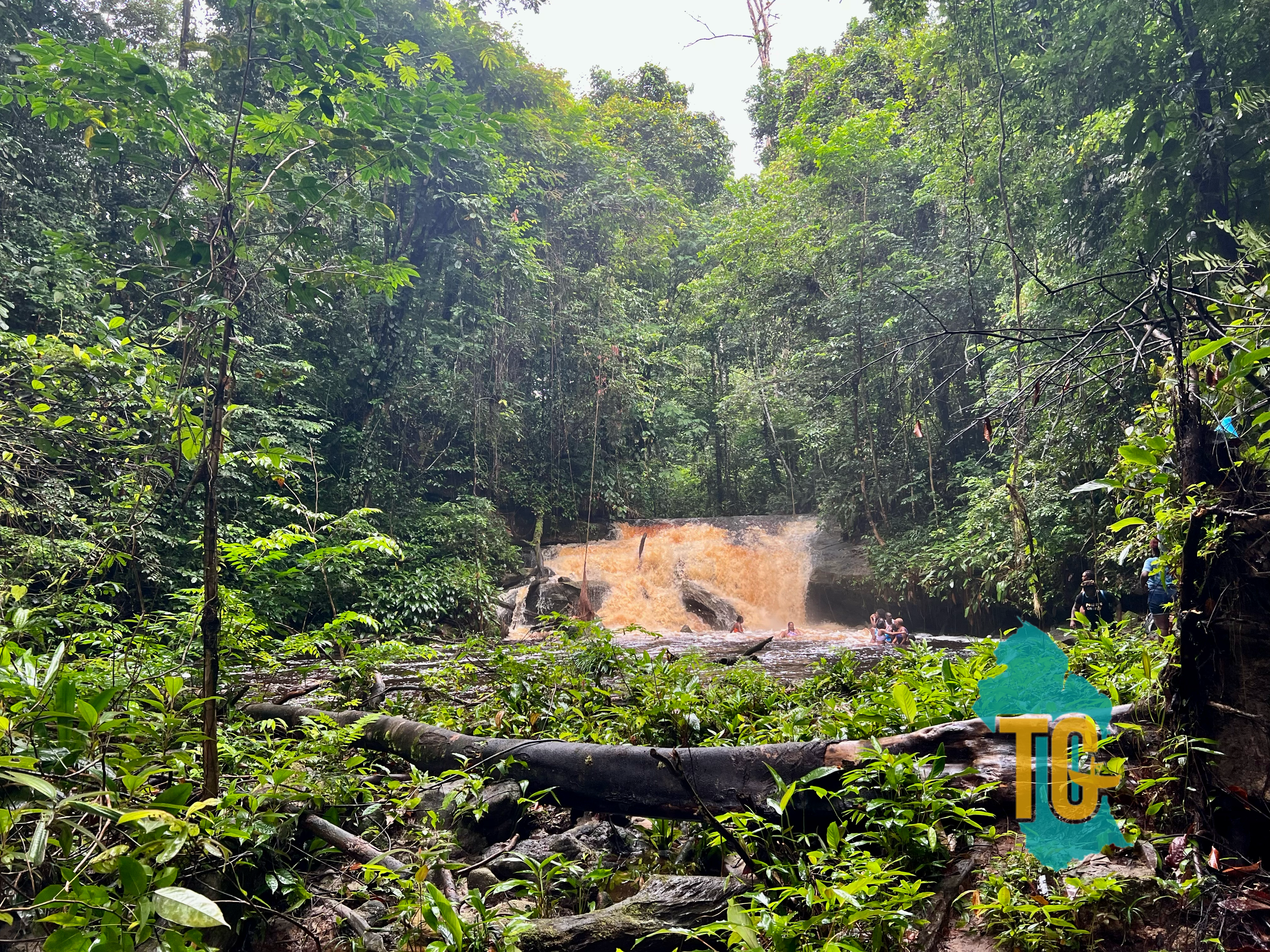
February 22-25, March 29 - April 1, August 1 -4, November 22-24, 2024

Every Saturday and Sunday
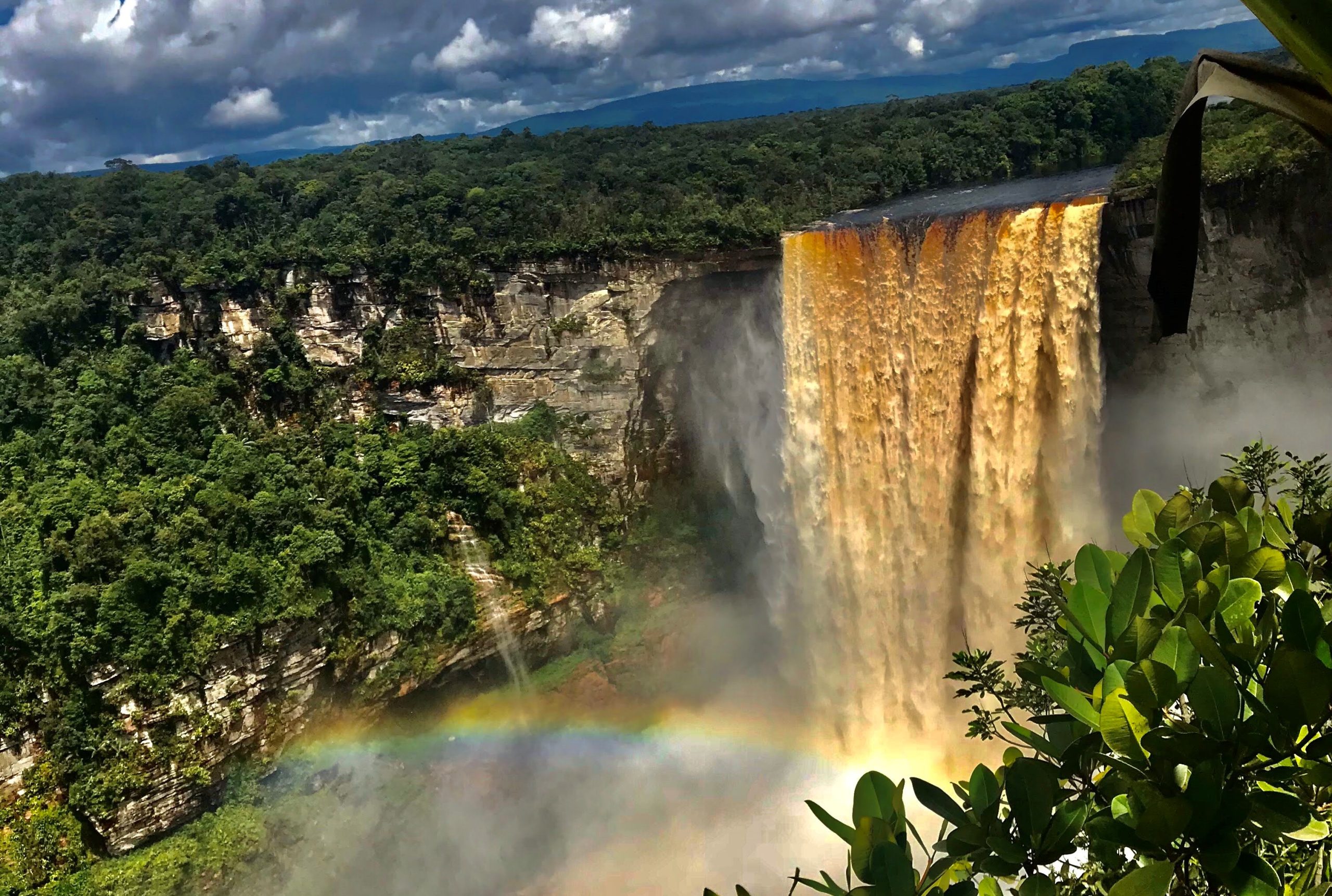
Why Choose Us?
Diverse destinations, easy booking, affordable rates, awesome adventure & unforgettable memories, customer service, personalized tours, search tours, most popular tours.
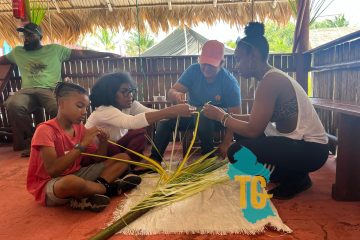
Pakuri - St. Cuthbert's Mission (Indigenous Village)
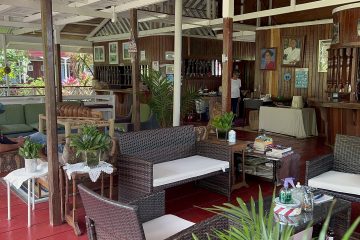
Pomeroon - Moruca 3 Days
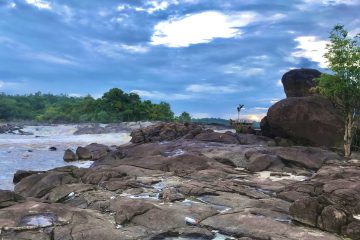
Mahdia - 3 Days
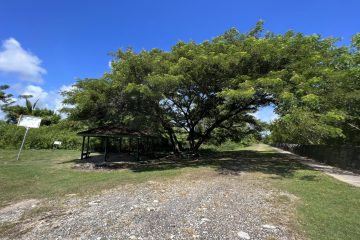
A day in the Country
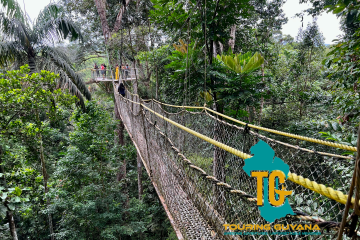
Rupununi Tour - 4 Days
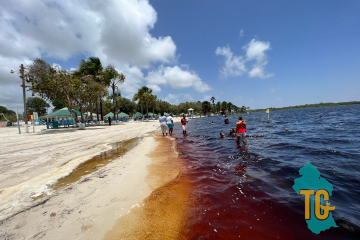
Essequibo Lakes (Lake Capoey & Mainstay)

Mazaruni River Tour (Bartica)
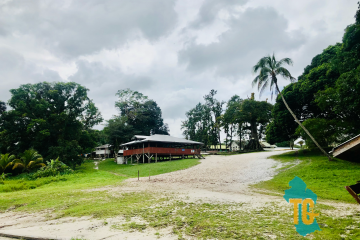
Santa Aratak (Indigenous Village)
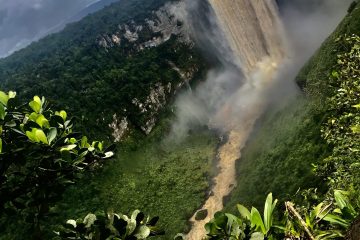
Kaieteur & Orinduik Falls
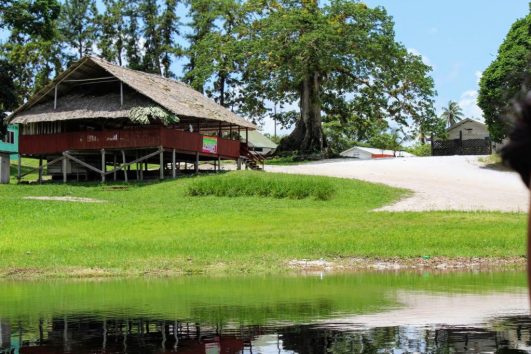
Tour Reviews
Jarelle brandford (kaieteur / orinduil falls).
What a fulfilling experience. Thanks to Touring Guyana for delivering!

Dr. Cosmos Omoniyoc (Kaieteur/Orinduik Falls)
Thank you very much for the experience. We had a blast.

Madonna Ghanie (Dhandarry Nature Resort)
My daughter said it was her best birthday ever. I’m really glad we didn’t get scared because of the little rain that was falling in the morning because the rest of the day was beautiful.

Senetra Rampersaud (Marshall Falls)
It was AMAZING!!! I’m honestly ready to go again, even though my body hurts. Thank you so much.

Davie Rambharrat (Bartica and Linden)
Thanks to you for making our trip a great one.

Latest update April 4th, 2024 12:06 AM
- Contact Information

Latest News
- ExxonMobil refused to show auditors location of oil meters on FPSO – Second Audit Reveals
- Pres. Ali now dissatisfied with GPL’s performance
- Israel kills seven aid workers in Gaza strike
- Oil is doomsday for Guyana without ring-fencing and renegotiation of Exxon contract – Local Activist tells BBC
- “Thou shall not steal” – Magistrate tells Brazilian after imposing 50-month jail sentence
Odyssey Sightseeing tours sponsors 40-over tourney in West Demerara
Apr 05, 2022 Sports
Kaieteur News – Odyssey Sightseeing Tours Guyana Inc., 40 Overs Cricket Tournament is set to commence on April17 in West Demerara. The launching was done yesterday at the Company Wharf at Look Out, Parika, East Bank Essequibo.

Odyssey representative Maureen Codrington presents the cheque to Avishkar Ramgobin of West Demerara CA.
At the launching ceremony, the Company representative Maureen Codrington handed over the Cheque to the West Demerara Cricket Association P.R.O Avishkar Ramgobin in the presence of Odyssey Tours Staff. Codrington said that the Tour Company is very excited to be on board with this tournament and looking forward to very competitive and disciplined cricket. Speaking on behalf of the West Demerara Cricket Association President Azeem Khan said, the board is very thankful to Odyssey Tours and promises that the newly elected executives will give an account of the sponsorship, which all teams will benefit, from Meten-Meer-Zorg on West Coast to Wales on the West Bank of Demerara. The Tournament will be played with white balls as West Demerara is set to return to play in the Demerara senior 50 overs Tournament. Odyssey Tours offers day tour packages to the Essequibo River and Mainstay Resort. They are located at 171 A Light Street, Bourda Georgetown. For further info do check out their facebook page and website.
Share this:
- Click to print (Opens in new window)
- Click to email a link to a friend (Opens in new window)
- Click to share on Facebook (Opens in new window)
- Click to share on WhatsApp (Opens in new window)
- Click to share on Twitter (Opens in new window)
- Click to share on Pinterest (Opens in new window)
- Click to share on Pocket (Opens in new window)
- Click to share on Tumblr (Opens in new window)
- Click to share on Reddit (Opens in new window)
- Click to share on LinkedIn (Opens in new window)
Similar Articles
- > CARIFTA Games athletes greeted with a red carpet welcome
- > Pele FC Alumni two-day Youth Seminar witness massive...
- > Timehri United, Cougars FC book spots into Easter Cup semis
- > Hetmyer bowlers sink Windwards by 91-runs
- > Sixteen RHTYSC youth cricketers benefits from $500,000...
- > Slingerz and Guyana Defence Force record wins on Sunday
- > Race of Champions set for April 28; Bossalina, Spankhurst...
- > Hinckson’s historic gold, Mixed Relay record the story...
- > Guyana impress but edged out 5-4 by England at O45 Indoor...
- > Guyana express interest in hosting 2026 CARIFTA Games
- > Balgobin century propels Windsor Forest A into Jits &...
- > Edifying experiences await 150+ males and females as Pele...
- > Former National football stalwart and educator Granton...
- > Jairam wings out tomorrow for Pan Am Draughts Championship...
- > Moen Gafoor prevails over James Krakowsky for Scrabble...

The Glenn Lall Show | Mar. 27th, 2024
Follow on Tik Tok @Glennlall
JAGDEO REFUSING TO TELL GUYANA WHO REALLY ENJOYING THE KAIETEUR AND CANJE MONEY.
THE BLUNT OF THE DAY

CARIFTA Games athletes greeted with a red carpet welcome
Apr 03, 2024

Pele FC Alumni two-day Youth Seminar witness...

Timehri United, Cougars FC book spots into Easter...

Hetmyer bowlers sink Windwards by 91-runs

Sixteen RHTYSC youth cricketers benefits from...

Slingerz and Guyana Defence Force record wins on...
Features/columnists, the belated coi.

Kaieteur News – The period panning 2002 to 2006 was an era marred by a harrowing spate of homicides, massacres, and... more
Thirsty future? Urgent action for Caribbean and Latin America

By Sir Ronald Sanders Kaieteur News – In the face of escalating global environmental challenges, water scarcity and... more
Tell the Guyanese people, Mr. Routledge

H@rd Truths by GHK Lall Kaieteur News – Mr. Alistair Routledge is more than Exxon’s Country head in Guyana. Mr.... more
Publisher’s Note
Freedom of speech is our core value at Kaieteur News. If the letter/e-mail you sent was not published, and you believe that its contents were not libellous, let us know, please contact us by phone or email.
Feel free to send us your comments and/or criticisms. Contact: 624-6456; 225-8452; 225-8458; 225-8463; 225-8465; 225-8473 or 225-8491. Or by Email: [email protected] / [email protected]
Weekend Cartoon

Bridge Watch
Demerara harbour bridge, > berbice bridge […].


*Prices below are per person based on double occupancy and include airline taxes, surcharges and fees of $0, which are subject to change until final payment is made. All tour prices (excluding airline taxes, surcharges, and fees) are guaranteed.
Departure Selected
Special event, please note, guest 1 details, guest 2 details, trip details, additional options, guest information.

Find Your Next Great Adventure

The Beauty of Small Group Travel

Our Latest e-Catalog Is Here
We've released our latest e-catalog, which includes all 2024 and select 2025 departure dates and prices. In addition, we're pleased to introduce our new Physical Activity Level ratings on each tour.
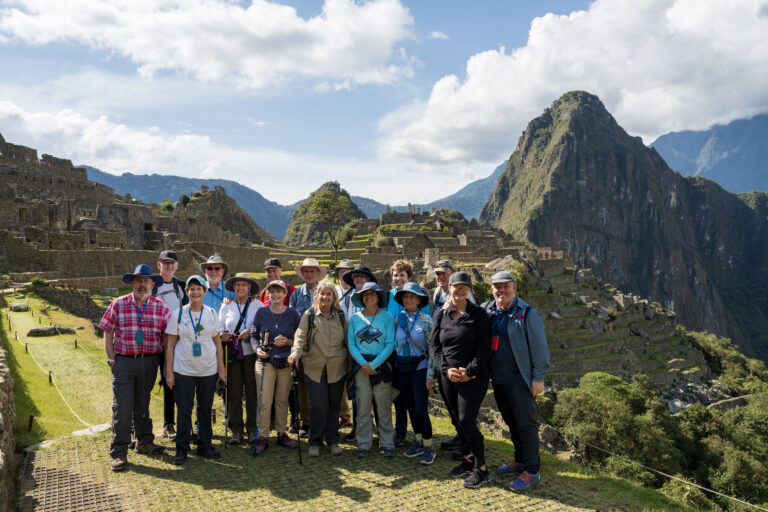
Introducing Our New Physical Activity Level Rating System
We have a new tool to help you make a more informed decision when choosing your next Odysseys adventure. You can now find a Physical Activity Level rating that measures the difficulty of each tour on a scale of 1 to 5, from Easy to Challenging, on each tour on our website, in our catalog, and in our My Odyssey guest portal.
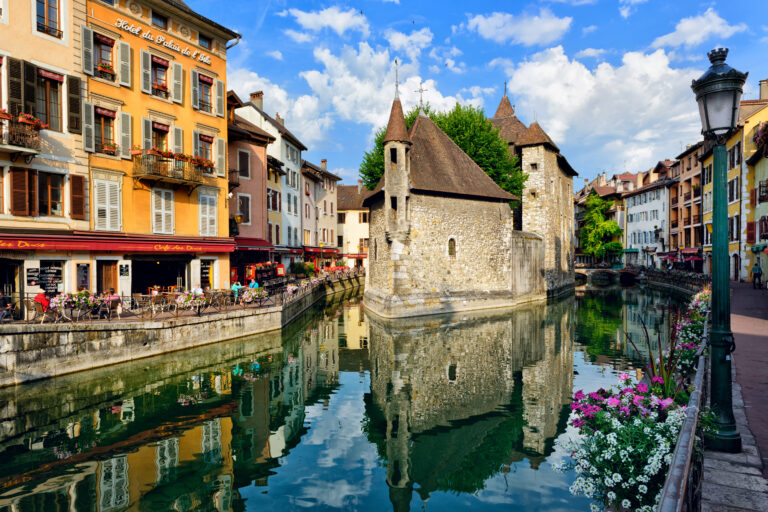
New for 2025: Essential France
A message from bruce epstein.
Hear from Odysseys’ president and founder about the benefits of exploring the world with the pioneer of small group travel.

Our Destinations
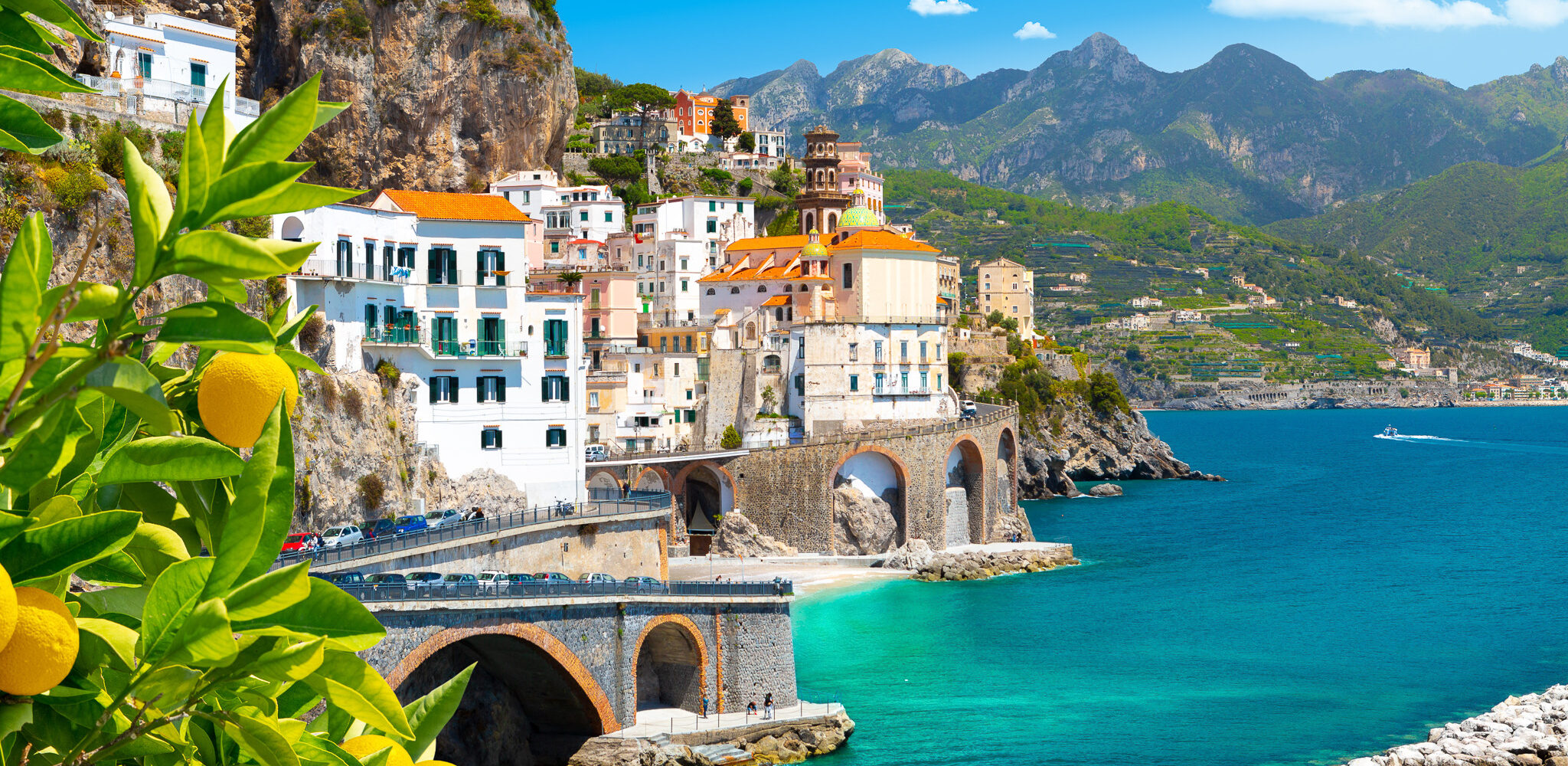

Guest Feedback

I would definitely do another Odysseys tour – great company, great value.
We continue to be amazed at the value and quality of these trips.
Love your company and feel like we get excellent value.
The small group (20) was perfect.
Love small group tours. Odysseys does it right!
I loved the small group...I felt safe and well cared for.
Odysseys is our #1 choice for group travel.
It was a truly first-rate experience in every way.
Each of our four tours with you has been outstanding!

The Odysseys View
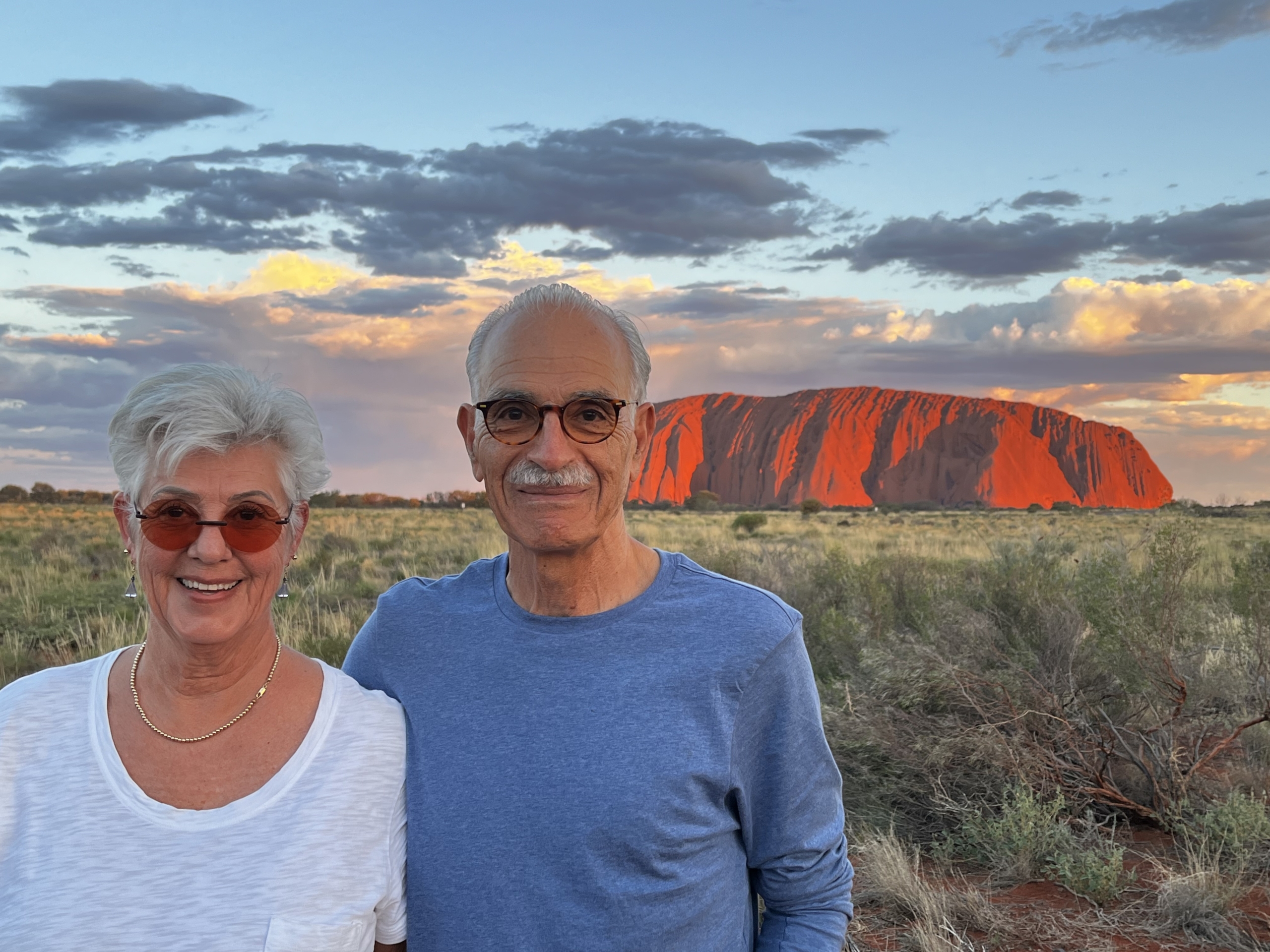
Laurel Davar is not only a loyal Odysseys guest – she’s also a talented artist who paints portraits of Tour Directors she's had on Odysseys tours. We recently spoke with Laurel about her creative process and what she enjoys about traveling with Odysseys Unlimited.

Earth boasts many spectacular natural phenomena you simply must see to believe. From the aurora borealis to Japanese cherry blossom season, these events inspire wonder in all who witness them. Here are five natural phenomena you can see on an Odysseys Unlimited small group tour – and the time of year to experience each one.

If you’re anything like us, you probably have a running list of destinations that you dream of visiting. Maybe you wish to go on safari in Africa, or explore the mysteries of Southeast Asia, or traverse the Australian Outback… Odysseys employees are no different – we have our own travel dreams, as well. Check out what Odysseys employees have in mind for their own future adventures.
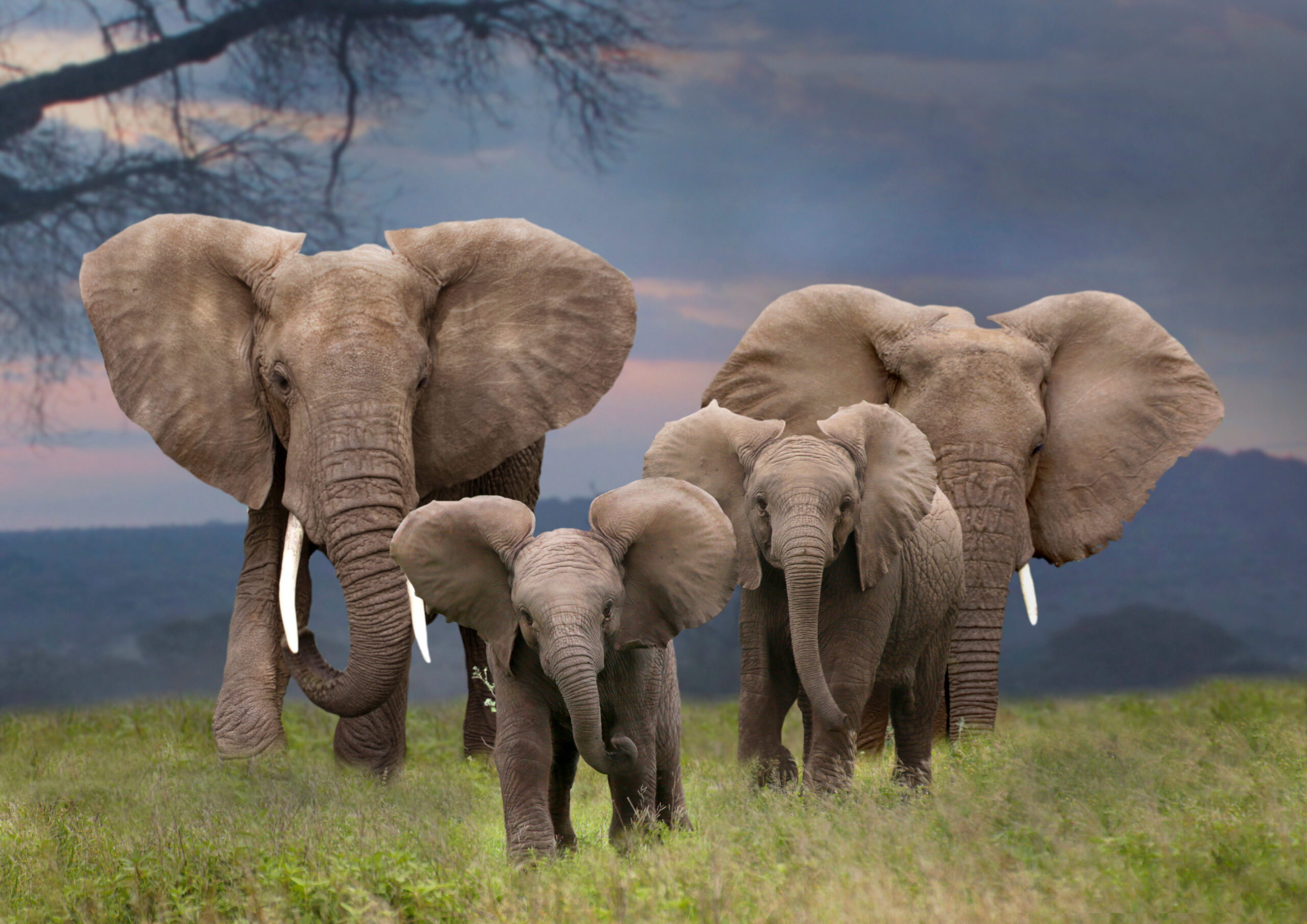
A driving force for many travelers is the opportunity to see indigenous wildlife in their natural habitats. If wildlife encounters count as a travel highlight for you, we have five excellent destinations that allow you to see animals of all types – and best of all, our visits to see these creatures help support the work being done to keep them safe. Click to learn all about five destinations perfect for spotting wildlife.
Frequent Traveler Program

Destinations
Quick links, connect with us.
Share your great adventures with us on social media. Tag your pictures with #myodyssey and they may be featured on our website!

By using this website you are agreeing to our Cookie Policy .

- Top Stories
- Anuradha Dev
- Anna’s Arrow
- Ashley Anthony
- Business Feature
- Keeping It Real
- Lomarsh Luminary
- Ryhaan Shah
- Sunday Magazine
- Straight talk
- The Roar of Ravi Dev
- Think Twice
- Younge’s Take
- The Economy & Finance – JB’s Insight
- Entertainment
- Career Opportunities

Odyssey River & Sightseeing Tours partners with LGC
The number one tour company in guyana, odyssey river and sightseeing tours — that one with a new 80-passenger tour boat operating from parika — has joined the lgc to promote the game of golf..

Managing Director of this tour company, Feroze Barakat, is a longtime member of the club, and is still an avid golfer. Despite his absence from activities there, he said he is proud to support the LGC executive body as they continue the strive to provide the best golfing experience year-round. Speaking at a simple ceremony, LGC President Aleem Hussain said, “We want to say thanks to Odyssey Site Seeing Tours for their support. They have always been major partners of the sport; so, this year, as they have come on board, we ask everyone to come out and support the tournament. We are expecting a major turnout, as the court is in excellent condition.” Troy Khan, manager of the company, urged members of the public to use Odyssey Site Seeing Tours, as they are safe and reliable. Khan also noted that the company is looking to award participants special prizes in their respective events, so they may be able to witness Guyana’s beauty first hand. This weekend will feature a double-header, as players prepare for the Suriname Open and the Guyana Open in October. There will be three flights to accommodate players of all abilities, with handicap up to 36! Top two winners in each flight will take home a trophy, and prizes will be provided for the longest drive and nearest to the pin. Members of the public are invited to attend the event, which commences at 8:30am; and they are urged to stay on to enjoy the tranquility of the serene setting of the golf club. For more information on how you may learn the game absolutely free, visit Lusignan Golf Club on Facebook, or call 220-5660.
Related articles more from author.

Waramuri Top, West Ruimveldt, Chase stay perfect after Round 2

CWI U15 Rising Stars: Pereira, Ramdehol, Hetmyer guide Guyana to victory

Indoor Hockey Masters World Cup 2024: Guyana creates history in securing silver

Read More Interesting Content

Pres Ali blasts GPL top brass over persistent power failures

GFS battling wildfires at Perseverance, Sand Hills

United Airlines kicks off direct flights between Houston, Georgetown

- Arts & Entertainment
- Crime & Security
- International
- 4 minutes 4 change
- Chronicles of a Chronic Guyana Chronicler
- Frederick Kissoon
- Its in Our Nature
- LCDS in perspective
- Oil, Gas & You
- Talking Culture
- The Science of COVID-19
- Beyond the Runway
- Big Little Voice
- Consumer Concern
- Dentist Advises
- Lead Stories
- Fables of a Wondering Mind
- Focus On The Village
- Psychologist
- The Write Mind
- Youth Perspective

- | August 19, 2023
- By Staff Reporter
- - August 19, 2023

Meten-Meer-Zorg Warriors beat Zeeburg Sports Club Meten-Meer-Zorg Warriors crushed Zeeburg Sports Club by eight wickets at Zeeburg to take the Odyssey Tours 50-over trophy. The one-sided final was marred by an incident involving Zeeburg’s and Senior Essequibo Inter-County all-rounder, Malcom Hubbard. Hubbard, who, with nine runs to win, chose to bowl ‘under arm’ –an illegal delivery — much to the disappointment of fans in the stands.
Winning the toss, The Warriors asked the host to bat and skittled them out for a paltry 88 in just 21 overs before galloping to victory in 16.1 overs, scoring 90-2. Mark Jeffers and Vishal Persaud put on 19 for the first wicket before the tournament’s leading wicket-taker and captain, Anil Sookdeo, bowled Persaud (1). Zeeburg never recovered as they struggled to reach a hundred; eventually falling 12 short of a three-figure total.
Zeeburg started the game with 10 players and Jeffers’ 18 was the top score while only Jamal Gomes 16 and George Jeffers 13 reached double figures Damuka Junior, bowling with good pace and control, grabbed 3-28 from seven overs with support from off-spinner, Ameer Mohamed (3-31) and Jermaine Scott 2-21. Adrian Hinds, who struck four boundaries in his unfinished 26, and Jamal Hinds who made 20 not out, saw Warriors home with an unbroken 45-run stand. The Warriors collected a Cheque worth $ 200,000 while Zeeburg took home $50,000
Damuka Junior was Awarded $10,000 and a trophy after being adjudged the Man of the Match. Warriors’ captain Anil Sookdeo was awarded for being the bowler with the most wickets. West Demerara police and national batter, Kemol Savory, was named the tournament’s best batter after making two centuries while Renaldo Renee, who missed the final, was adjudged the tournament’s best wicket-keeper. (Sean Devers)
Leave a Comment Cancel Reply
Your email address will not be published. Required fields are marked *


More from this author
- | 2024-04-03

Mailing Address
Lama Avenue, Bel Air Park, Georgetown, Guyana.
General Numbers
(592) 226-3243-9
[email protected] (Editorial) (Advertising Department) [email protected] or [email protected]
E-Papers Daily
Business supplement.


Brazil Guyana Odyssey
This cultural and natural history tour explores the Amazon region of Guyana, Manaus and Brazil. It captures the natural wonders in both countries. You will discover a fantastic ecosystem, vast rainforests, the magnificent Kaieteur Falls, which tumbles 741 feet (225 meters) into a gorge below. Search for jaguars, Harpy Eagles, black caiman, and giant otters in known habitats in jungles, savannahs, and mighty rivers. An exciting experience awaits you at Manaus, the paradise of the Amazon with its 17th and 18th-century architecture and incredible culture. These two combinations are worth the visit!
- Trip Type Culture & Landmark
- Activities Falls Visits , History & Culture , River trip , Sightseeing
- Group Size 5 Min - 10 Max
- Reviews 0 Reviews
- Locations Brazil , Guyana , South America
- Trip Duration 12 Day(s) 11 Night(s)
- Trip Outline
- Trip Includes
- Trip Excludes
Departures: This tour is offered all year.
No details found.
Itineraries
Arrival, georgetown.
Arrive in Guyana and meet our representatives. Transfer to your hotel.
Georgetown City Tour and Kaieteur Falls Excursion
Guides will take you on a two-hour city tour of Georgetown. After the tour, transfer to the airport for your flight to Kaieteur Falls.
Dutch Ruin and River Safari Tour
You depart Georgetown to Parika and take a boat to Fort Island. At the Fort, you will explore the ruins of the old Dutch and learn about its history. Then you will continue to the Essequibo and Mazaruni rivers with stops at the Whitewater Falls. Return in the afternoon and overnight at your hotel.
Drive to Iwokrama/Lethem
Travel to Lethem, passing through Linden Highway, Mabura Hills and lush rainforest. Visit the Iwokrama Rainforest Reserve and the Canopy walkway. Transfer to Lethem and the Takutu River crossing for your trip to Boa Vista. Cross by open boat/pontoon and then join the luxury coach, which will be waiting for you for the 1 1/2 hour trip to Boa Vista. Transfer to our hotel for one night. (Meals: breakfast, lunch and dinner)
Boa Vista, Brazil
Travel to Boa Vista, and join an afternoon tour of the city. Late afternoon departure for Manaus. (Meals: breakfast, lunch, dinner)
Drive to Manaus, Brazil
Early arrival in Manaus. Transfer to hotel for three nights. Afternoon tour of the main shopping streets. Bi-lingual guides provided. (Meals: Breakfast, lunch, dinner) 3 nights at Hotel Brazil
Manaus City Tour
Take a tour of Manaus city. Visit the Opera House, the museum, the zoo and the botanical gardens. Also, visit Ponta Negra beach and seaside for dinner and a show. (Meals: breakfast, lunch, dinner)
Meeting of the Waters Tour
After breakfast, transfer to the dock. Enjoy the spectacular meeting of the waters tour. Return for afternoon shopping.
Shopping and Sightseeing
All-day shopping and sightseeing. Late transfer to Boa Vista. (Meals: breakfast, lunch and dinner)
Return to Boa Vista
Early arrival in Boa Vista. Transfer to your hotel. (Meals: breakfast)
Return to Georgetown, Guyana
Early breakfast at the hotel and early departure for Lethem. Late afternoon arrival in Georgetown.
Depart Guyana
Transfer to the airport for your return flight.
Accommodation, internal flights, transfers between airports and hotels, listed hotels and hotel taxes, activities as described and admission charges where applicable, river and land transfers, listed, lodges with full board and other meals as indicated. Local guides, local beverages.
International airfare, airport/departure taxes, gratuities, optional excursions, travel insurance, visas.
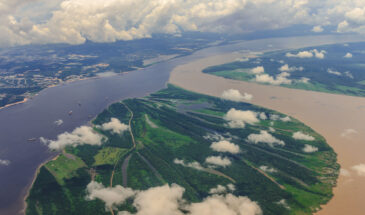
No Details Found
Related Trips

Suriname Samaaka Maroon Tour

St Lucia 3 Guianas
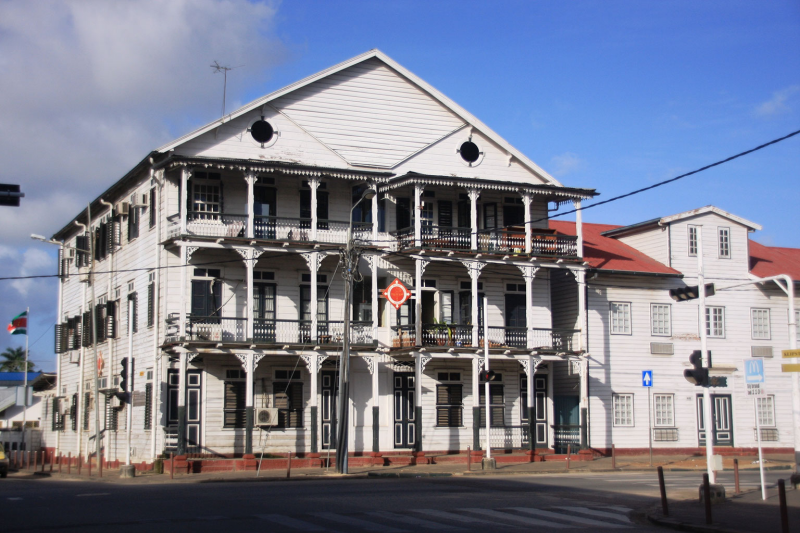
Guyana and Suriname Classic Tour

- Share full article

Is Guyana’s Oil a Blessing or a Curse?
More than any single country, Guyana demonstrates the struggle between the consequences of climate change and the lure of the oil economy.
With the discovery of offshore oil, Guyana is now building a natural gas pipeline to bring the byproducts of oil production to a planned energy plant. Credit...
Supported by
By Gaiutra Bahadur
Photographs by Keisha Scarville
- March 30, 2024
Basjit Mahabir won’t let me in.
I’m trying to persuade Mr. Mahabir to open the padlocked gate of the Wales Estate, where he guards the ramshackle remains of a factory surrounded by miles of fallow sugar cane fields. The growing and grinding of sugar on this plantation about 10 miles from Georgetown, Guyana’s capital, ended seven years ago, and parts of the complex, its weathered zinc walls the color of rust, have been sold for scrap.
I plead my case. “I lived here when I was a little girl,” I say. “My father used to manage the field lab.” Mr. Mahabir is friendly, but firm. I’m not getting in.
The ruins are the vestiges of a sugar industry that, after enriching British colonizers for centuries, was the measure of the nation’s wealth when it achieved independence.
Now the estate is slated to become part of Guyana’s latest boom, an oil rush that is reshaping the country’s future. This nation that lies off the beaten track, population 800,000, is at the forefront of a global paradox: Even as the world pledges to transition away from fossil fuels , developing countries have many short-term incentives to double down on them.
Before oil, outsiders mostly came to Guyana for eco-tourism, lured by rainforests that cover 87 percent of its land. In 2009, the effort to combat global warming turned this into a new kind of currency when Guyana sold carbon credits totaling $250 million, essentially promising to keep that carbon stored in trees. Guyana’s leadership was praised for this planet-saving effort.
Six years later, Exxon Mobil discovered a bounty of oil under Guyana’s coastal waters. Soon the company and its consortium partners, Hess and the Chinese National Offshore Oil Corporation, began drilling with uncommon speed. The oil, now burned mostly in Europe, is enabling more global emissions — and producing colossal wealth.
The find is projected to become Exxon Mobil’s biggest revenue source by decade’s end. The deal that made it possible — and which gave Exxon Mobil the bulk of the proceeds — has been a point of public outcry and even a lawsuit, with a seeming consensus that Guyana got the short end of the stick. But the deal has nonetheless generated $3.5 billion so far for the country, more money than it has ever seen, significantly more than it gained from conserving trees. It’s enough to chart a new destiny.
The government has decided to pursue that destiny by investing even further in fossil fuels. Most of the oil windfall available in its treasury is going to construct roads and other infrastructure, most notably a 152-mile pipeline to carry ashore natural gas, released while extracting oil from Exxon Mobil’s fields, to generate electricity.
The pipeline will snake across the Wales Estate, carrying the gas to a proposed power plant and to a second plant that will use the byproducts to potentially produce cooking gas and fertilizer. With a price tag of more than $2 billion, it’s the most expensive public infrastructure project in the country’s history. The hope is that with a predictable, plentiful supply of cheap energy, the country can develop economically.
At the same time, climate change laps at Guyana’s shores; much of Georgetown is projected to be underwater by 2030.

Countries like Guyana are caught in a perfect storm where the consequences for extracting fossil fuels collide with the incentives to do so. Unlike wealthy countries, they aren’t responsible for most of the carbon emissions that now threaten the planet. “We’re obviously talking about developing countries here, and if there’s so much social and economic development that still needs to happen, then it’s hard to actually demand a complete ban on fossil fuels,” says Maria Antonia Tigre, a director at the Sabin Center for Climate Change Law at Columbia University. Still, she insists, “we’re in a moment in the climate crisis where no one can get a pass.”
This struggle between the existential threats of climate change and the material gains dangled by fossil fuels bedevils rich countries, too. The International Energy Agency predicts that oil demand will peak in five years as big economies transition to renewable sources. But it is a transition of indeterminate length, and in the meantime, the Biden administration approved drilling in the Alaska wilderness just last year, and the United States is producing more oil than ever in its history. A country like Guyana, with an emerging economy, has even more reason to jump at temptation.
The country has already been transformed. Next to its famously elegant but decaying colonial architecture, new houses, hotels, malls, gyms and offices of concrete and glass crop up constantly. Trucks carrying quartz sand for all this construction judder along the highways. While nearly half of Guyanese still live below the poverty line, the country is bustling with possibility, and newcomers arrive from around the world. During a five-month stay there, I met a logistics manager from Sri Lanka, a nightclub singer from Cuba, a Briton developing a shrimp farm and a Nigerian security guard who joked that a sure sign that Guyana had become a hustler’s paradise was that he was there.
As I survey the stranded assets of the sugar works on the Wales Estate, imagining the steel pipes to come, the gleaming future Guyana’s government promises feels haunted by its past as a colony cursed by its resources. The potential for the petroleum boom to implode is in plain sight next door, where Venezuela — which has recently resurrected old claims to much of Guyana’s territory — is a mess of corruption, authoritarian rule and economic volatility.
For centuries, foreign powers set the terms for this sliver of South America on the Atlantic Ocean. The British, who first took possession in 1796, treated the colony as a vast sugar factory. They trafficked enslaved Africans to labor on the plantations and then, after abolition, found a brutally effective substitute by contracting indentured servants, mainly from India. Mr. Mahabir, who worked cutting cane for most of his life, is descended from those indentured workers, as am I.
Fifty-seven years ago, the country shook off its imperial shackles, but genuine democracy took more time. On the eve of independence, foreign meddling installed a leader who swiftly became a dictator. Tensions between citizens of African and Indian descent, encouraged under colonialism, turned violent at independence and set off a bitter contest for governing supremacy that continues to this day. Indigenous groups have been courted by both sides in this political and ethnic rivalry.
It wasn’t until the early 1990s that Guyana held its first free and fair elections. The moment was full of possibility. The institutions of democracy, such as an independent judiciary, began to emerge. And the legislature passed a series of robust environmental laws.
Now that Exxon Mobil has arrived to extract a new resource, some supporters of democracy and the environment see those protections as endangered. They criticize the fossil-fuel giant, with global revenue 10 times the size of Guyana’s gross domestic product, as a new kind of colonizer and have sued their government to press it to enforce its laws and regulations. The judge in one of those cases has rebuked the country’s Environmental Protection Agency as being “submissive” toward the oil industry.
Addressing some of these activists at a recent public hearing, Vickram Bharrat, the minister of natural resources, defended the government’s oversight of oil and gas. “There’s no evidence of bias toward any multinational corporations,” he said. Exxon Mobil, in an emailed statement, said its work on the natural gas project would “help provide lower-emissions, reliable, gas-powered electricity to Guyanese consumers.”
The world is at a critical juncture, and Guyana sits at the intersection. The country of my birth is a tiny speck on the planet, but the discovery of oil there has cracked open questions of giant significance. How can wealthy countries be held to account for their promises to move away from fossil fuels? Can the institutions of a fragile democracy keep large corporations in check? And what kind of future is Guyana promising its citizens as it places bets on commodities that much of the world is vowing to make obsolete?

A land of new possibilities
Oil has created a Guyana with pumpkin spice lattes. The first Starbucks store appeared outside the capital last year; it was such a big deal that the president and the American ambassador attended the opening. People still “lime” — hang out — with local Carib beer and boomboxes on the storied sea wall, but those with the cash can now go for karaoke and fancy cocktails at a new Hard Rock Cafe.
The influx of wealth has introduced new tensions along economic lines in an already racially divided country. Hyperinflation has made fish, vegetables and other staples costlier, and many Guyanese feel priced out of pleasures in their own country. A new rooftop restaurant, described to me as “pizza for Guyana’s 1 percent” by its consultant chef from Brooklyn, set off a backlash on social media for serving a cut of beef that costs $335, as much as a security guard in the capital earns in a month.
This aspirational consumerist playground is grafted onto a ragged infrastructure. Lexus S.U.V.s cruise new highways but must still gingerly wade through knee-deep floods in Georgetown when it rains, thanks to bad drainage. Electricity, the subject of much teeth-sucking and dark humor, is expensive and erratic. It’s also dirty, powered by heavy fuel, a tarlike residue from refining oil. In 2023, 96 blackouts halted activity across the country for an average of one hour each. A growing number of air-conditioners taxing aging generators are partly to blame, but the system has been tripped up by weeds entangling transmission lines, backhoes hitting power poles and once, infamously, a rat.
The country’s larger companies — makers of El Dorado rum, timber producers — generate their own electricity outside the power grid. Small companies, however, don’t have that option. This year, the Inter-American Development Bank cited electrical outages as a major obstacle to doing business in Guyana.
The government’s investment in a natural gas pipeline and power plant offers the prospect of steady and affordable power. The gas, a byproduct of Exxon Mobil’s drilling, tends not to be commercialized and is often flared off as waste, emitting greenhouse gases in the process. But at the government’s request, Exxon Mobil and its consortium partners agreed to send some of the natural gas to the Wales site. The consortium is supposed to supply it without cost, but no official sales agreement has been made public yet.

At international conferences, rich countries have pledged to help poorer, lower-emitting ones to raise their living standards sustainably with renewable energy, but the money has fallen short . Natural gas is cleaner than the heavy fuel Guyana now uses, and the country’s leaders claim that it will serve as an eventual bridge to renewable energy. The fact that it’s not as clean as solar or other renewable sources seems, to some local manufacturers, beside the point because the status quo is so challenging.
During blackouts, Upasna Mudlier, who runs Denmor Garments, a textile company that makes uniforms, fire safety jackets and lingerie, has to send home the two dozen seamstresses she employs. That means a big hit in productivity. A chemist in her late 30s, she inherited the company from her father. Ms. Mudlier was nervous about networking in the burly crush of the male-dominated local business elite, but she nonetheless attended an event hosted by a business development center funded by Exxon Mobil. She leaned in, and it paid off: She won a contract to make a thousand coveralls for workers building an oil production vessel headed for Guyana’s waters.
It was a bright spot nonetheless dimmed by her electric bill. An astounding 40 percent of her operating budget goes to paying for power. Ms. Mudlier is eager for the natural gas plant. Cheaper, reliable energy could allow her to price her products to compete internationally.
Textiles are a tiny niche in Guyana, but hers is the kind of manufacturing that experts say Guyana needs to avoid becoming a petroleum state. Ms. Mudlier agrees with the government’s messaging on the gas project. “It will create more jobs for people and bring more investments into our country and more diversity to our economy,” she said.
Widespread anxiety that the best new jobs would go to foreigners led to a law that sets quotas for oil and gas companies to hire and contract with locals. Komal Singh, a construction magnate in his mid-50s, has benefited from the law. Mr. Singh, who directs an influential government advisory body on business policy, works as a joint partner with international companies building the Wales pipeline and treating toxic waste from offshore oil production.
“We say to them, ‘It’s you, me and Guyanese,’” he told me. “If Guyanese are not part of the show, end of conversation.”
Guyana has lost a greater share of its people than any other country, with two in five people born there living abroad. So the oil boom and the local partner requirement have set off something of a frenzy for passports and have fueled debate over who, exactly, is Guyanese. I met a British private equity manager with a Guyanese mother who obtained citizenship shortly after his second visit to the country. One local partner’s contested citizenship became a matter for the High Court.
With the value of land and housing skyrocketing, some local property owners have profited by becoming landlords to expats or by selling abandoned fields at Manhattan prices for commercial real estate. But to many Guyanese, it has seemed as if “comebackees,” the term for returning members of the diaspora, or the politically connected elite are the most poised to benefit from the boom.
Sharia Bacchus returned to Guyana after two decades living in Florida. Ms. Bacchus, who has family connections in the government and private sector, started her own real estate brokerage. She rents apartments and houses to expats for as much as $6,000 a month.
I shadowed her as she showed a prospective buyer — a retired U.S. Marine of Guyanese descent — a duplex condo in a coveted new gated community. She eagerly pointed out amenities that comebackees want: air-conditioning, a pool and, of course, an automatic backup generator.
“If you lose power at any time, you don’t have to worry about that,” she said, reassuringly.
The ghosts of the past
As glimpses of this new Guyana emerge, the ghosts of the past linger. A year ago, a Georgetown hotel, hustling like so many to take advantage of the new oil money, staged a $170-a-head rum-tasting event called “Night at the Estate House.” I’d been trying, unsuccessfully, to interview Exxon Mobil’s top brass in Guyana. When I heard rumors that its country manager would attend, I bought a ticket and, though he was a no-show, I found a seat with his inner circle.
As we sipped El Dorado rum in the garden of a colonial-style mansion, one of the event’s hosts gave a speech that invoked a time when “B.G.,” the insider’s shorthand for British Guiana, the country’s colonial name, also stood for Booker’s Guiana. Now, the speaker observed matter-of-factly, “it’s Exxon’s Guyana.”
Booker McConnell was a British multinational originally founded by two brothers who became rich on sugar and enslaved people. At one point, the company owned 80 percent of the sugar plantations in British Guiana, including the Wales Estate. The Exxon Mobil executive sitting next to me didn’t know any of this. His face reddened when I told him that the speaker had just placed his employer in a long line of corporate colonialism.
Independence came in 1966, but the U.S. and British governments engineered into power Guyana’s first leader, Forbes Burnham, a Black lawyer whom they deemed more pliable than Cheddi Jagan, a radical son of Indian plantation laborers, who was seen as a Marxist peril. But Burnham grew increasingly dictatorial as well as, in a twist of geopolitical fate, socialist.
Booker, which would later give its name to the Booker Prize in literature, still owned Wales at independence. But in the mid-1970s, Burnham took control of the country’s resources, nationalizing sugar production as well as bauxite mining. Like other former colonies, Guyana wanted to make its break with imperialism economic as well as political.
Burnham pushed the idea of economic independence to the breaking point, banning all imports. Staples from abroad, such as cooking oil, potatoes, wheat flour and split peas, had to be replaced with local substitutes. But Guyana didn’t have the farms and factories to meet the demand, so people turned to the black market, waited in ration lines and went hungry.
Guyana was 15 years free when my family arrived on the Wales Estate, by then part of the nationalized Guyana Sugar Company; my parents, then in their 20s, were young, too. My father, the son of plantation laborers, had just earned a natural sciences degree from the University of Guyana, founded at independence to educate the people who would build the new nation. As field lab manager, he tested sucrose in the cane to determine harvest time and oversaw the trapping of rats and snakes in the fields.
We lived in a former overseer’s house two doors from the estate’s main gate, where Mr. Mahabir now stands sentinel, and my mother taught high school in the guard’s village. My parents had only ever studied by kerosene lamp or gas lantern — but this house had electricity, generated on the estate by burning sugar cane trash.
I can remember at age 6 the cold delicacy of a refrigerated apple, a Christmas present from American aunts. It wouldn’t be long before we joined them.
Rigged elections kept Burnham in power for two decades of hardship and insecurity, both ethnic and economic. As soon as our long-awaited green cards allowing entry to the United States were approved, we left, participating in an exodus that created a “barrel economy,” with many communities sustained by money and care packages sent in barrels from relatives abroad. That exodus gutted Guyana: Today, less than 3 percent of the population is college educated.
Burnham’s death in 1985 touched off a series of events that began to change the country. Within seven years, Guyana held its first free and fair elections. Jagan, by then an old man, was elected president. Soon, a younger generation of his party took office and wholeheartedly embraced capitalism. Private companies could once again bid for Guyana’s vast resources. Corruption, endemic in the Burnham era, took new forms.
Then came proof of the dangers of unchecked extraction. In 1995, a dam at a Canadian-owned gold mine gave way. The 400 million gallons of cyanide-laced waste it had held back fouled two major rivers. Simone Mangal-Joly, now an environmental and international development specialist, was among the scientists on the ground testing cyanide levels in the river. The waters had turned red, and Indigenous villagers covered themselves in plastic to protect their skin. “It’s where they bathed,” Ms. Mangal-Joly recalled. “It was their drinking water, their cooking water, their transportation.”
The tragedy led to action. The next year, the government passed its first environmental protection law. Seven years later, the right to a healthy environment was added to the Constitution. Guyana managed to enshrine what the United States and Canada, for instance, have not.
For a moment, Guyana’s natural capital — the vast tropical rainforests that make it one of the very few countries that is a net carbon sink — was among its most prized assets. Bharrat Jagdeo, then president, sold the carbon stored in its forests to Norway to offset pollution from that country’s own petroleum production in 2009. Indigenous groups received $20 million from that deal to develop their villages and gain title to their ancestral lands, though some protested that they had little input. Mr. Jagdeo was hailed as a United Nations “Champion of the Earth.”
And then Exxon Mobil struck oil.
The vision of a green Guyana now vies with its fast-rising status as one of the largest new sources of oil in the world. The country’s sharply divided political parties stand in rare accord on drilling. Mr. Jagdeo, who is now Guyana’s vice president but still dictates much government policy, is a fervent supporter of the Wales project.
But a small, steadfast, multiracial movement of citizens is testing the power of the environmental laws. David Boyd, the U.N. special rapporteur on human rights and the environment, describes the country as a front line for litigation using innovative rights arguments to fight climate change. It includes the first constitutional climate change case in the region, brought by an Indigenous tour guide and a university lecturer.
Not all critics of the petroleum development are environmentalists. What unites them is the belief that the nation’s hard-won constitutional protections should be stronger than any corporation.

‘The rule of law is the rule of law.’
Liz Deane-Hughes comes from a prominent family. Her father founded one of Georgetown’s most respected law firms, and in the 1980s, back in Burnham’s time, he fought against repressive changes to the constitution. She remembers her parents taking her to rousing rallies led by a multiracial party battling Burnham’s rule. When she was 13, she came home one day to find police officers searching their home. “I lived through the 1980s in Guyana,” says Ms. Deane-Hughes, who practiced at the family firm before quitting the law. “So I do not want to go back there on any level.”
I talked to Ms. Deane-Hughes, now an artist and jewelry designer, on the sprawling veranda of a colonial-style house built on land that has been in her family for five generations. The government has claimed part of it for the natural gas pipeline, which crosses private property as well as the Wales Estate. But the issue, she told me, is bigger than her backyard.
Last month, Ms. Deane-Hughes joined other activists, virtually, at a hearing before the Inter-American Commission on Human Rights, making the argument that oil companies have compromised environmental governance in Guyana. This coterie of activists have spoken out and filed suits to bring the corporation under the scrutiny of the country’s laws and regulations.
Ms. Mangal-Joly, who responded to the cyanide disaster that prompted those environmental laws, says the government has failed to fulfill its oversight duties. As part of her doctoral research at University College London, she found that Guyana’s Environmental Protection Agency had waived the environmental assessments for every facility treating toxic waste or storing radioactive materials produced by offshore oil production.
The gas plant, too, has been given a pass. In January, the E.P.A. waived the environmental assessment for the proposed Wales plant because Exxon Mobil, although it isn’t building the plant, had done one for the pipeline.
The E.P.A. defended the decision. “It is good and common practice” to rely on existing environmental assessments “even when done by other project developers,” wrote an agency spokeswoman on behalf of its executive director. The agency asserted its right to waive assessments as it sees fit and noted that the courts hadn’t overturned its exemptions, saying, “This no doubt speaks to the E.P.A.’s high degree of technical competence and culture of compliance within the laws of Guyana.”
Ms. Mangal-Joly notes that the power plant sits above an aquifer that supplies drinking water to most of the country. “Our water table is shallow,” she says. “There’s a generation, and generations to come, that will not inherit clean water. We are despoiling a resource far more valuable than oil.”
The waiver infuriated Ms. Deane-Hughes. And the independence of the board that hears citizen concerns struck her as a sham. Its chairman, Mahender Sharma, heads Guyana’s energy agency, and his wife directs the new government company created to manage the power plant. At a hearing of the board, Ms. Deane-Hughes cited the mandate against conflicts of interest in the Environmental Protection Act and asked Mr. Sharma to recuse himself. “I would like you not to make a decision,” she told him.
Six weeks later, the board did make a decision: It allowed the power company to keep its environmental permit without doing an impact statement.
Mr. Sharma, the energy director, dismissed the critics as a privileged intellectual elite sheltered from the deprivations that have led many Guyanese to welcome the oil industry.
At the Inter-American commission meeting, Mr. Bharrat, the minister of natural resources, argued that it is his government’s right as well as its responsibility to balance economic growth with sustainability. “Our country’s development and environmental protection are not irreconcilable aims,” he told them. And he reminded them that they can turn to the courts with their complaints.
Guyana’s highest court has dealt the activists both setbacks and victories. In one of the more consequential cases, activists have thus far prevailed. Frederick Collins, who heads the local anti-corruption group Transparency Institute of Guyana, sued the E.P.A. for not requiring Exxon Mobil’s local subsidiaries to carry a more substantial insurance policy. Mr. Collins argued that the existing $600 million policy was inadequate in the extreme. Major oil spills aren’t rare — two happen worldwide every year. The biggest blowout ever, at BP’s Deepwater Horizon, cost that company $64 billion. The deepwater drilling in Guyana is the riskiest kind.
A retired insurance executive and Methodist preacher, Mr. Collins had been feeling pessimistic about the case ever since the judge allowed Exxon Mobil, with its daunting resources, to join the E.P.A. as a defendant a year ago. In legal filings, the defendants had dismissed him as a “meddlesome busybody” without legal standing to bring the suit.
But in May, the judge, Sandil Kissoon, pilloried the E.P.A. as “a derelict, pliant” agency whose “state of inertia and slumber” had “placed the nation, its citizens and the environment in grave peril.” He found that the insurance held by Exxon Mobil’s local subsidiary failed to meet international standards and ordered the parent company to guarantee its unlimited liability for all disaster costs — or stop drilling. The case is being appealed.
An Exxon Mobil spokesperson said by email that the company’s insurance is “adequate and appropriate” and that a $2 billion guarantee it recently provided, at the order of the court considering the appeal, “exceeds industry precedent and the estimate of potential liability.”
At a news conference, Mr. Jagdeo, the vice president, criticized the ruling and called on Guyana’s courts to make “predictable” decisions. “We are playing in the big leagues now,” he said. “We are not a backwater country where you can do whatever you want and get away with it.”
To Melinda Janki, the lawyer handling most of the activists’ suits and one of the few local lawyers willing to take on the oil companies, the question is whether Exxon Mobil can get away with doing whatever it wants. She helped shape some of Guyana’s strongest environmental laws. “Even though this is a massive oil company,” she said, “they still have to obey the law. The rule of law is the rule of law.”
The dissidents are deploying the law in their fight against the oil giant and the government, but with billions on the line, they’re also combating the currents of public opinion.
A fossil fuel economy in a changing world
For all the misery wrought by sugar during the colonial era, its legacy as an economic powerhouse lingers in local memory.
In Patentia, the village closest to Wales, where I attended first grade, laid-off sugar workers remember the estate as the center of the community. When its 1,000 workers lost their jobs, thousands more were sent reeling, as businesses from rum shops to mom-and-pop groceries folded.
The Guyana Sugar Corporation, then the country’s largest employer, eliminated a third of its work force, leaving about a fifth of the population coping with the effects of unemployment.
The timing of the closures, a year after the oil discovery, raised hopes that the petroleum industry might somehow fill the void. Seven years after the closures, however, most sugar workers haven’t found new jobs. Certainly, very few are employed by the petroleum industry.
Their struggle raises a crucial question for Guyana as it wrestles with the transition from the old economy to the new: How can Guyanese without the skills or education for petroleum jobs benefit? Nested within that quandary ticks another: What if the new economy isn’t so new? What if its petroleum-driven vision of progress is actually already outdated?
Thomas Singh, a behavioral economist who founded the University of Guyana’s Green Institute, has argued for transforming the still-active sugar industry’s waste into cellulosic ethanol, a cutting-edge biofuel. But Mr. Sharma, the energy agency head, says the industry is too small for its cane husks to power very much. Some of the jackpot from Norway for carbon offsets has been earmarked for eight small solar farms, but Mr. Sharma, who drives an electric car and has solar panels at his house, maintains that solar energy is too expensive to be a primary power source, despite arguments to the contrary . The giant hydroelectric project the Norway deal was supposed to fund, powered by a waterfall, has long been stalled.
What dominates the local imagination now is oil and gas. During my stay in Guyana, I kept hearing the calypso song “ Not a Blade of Grass ” on the radio. Written in the 1970s as a patriotic rallying cry and a stand against Venezuela, which threatened to annex two-thirds of Guyana, it has made a comeback with a new cover version. (So, too, have Venezuela’s threats .) The lyrics, to an outsider’s ear, sound like an anthem against Exxon Mobil: “When outside faces from foreign places talk about takin’ over, we ain’t backin’ down.” But in Guyana, it has been invoked recently to assert the nation’s right to pump its own oil. The voices against drilling, however outspoken, remain isolated; the more passionate debate is over whether Guyana should renegotiate its contract to get a bigger take of the oil proceeds.
Oil is seen as such a boon that even questioning how it’s regulated can be branded unpatriotic. Journalists, academics, lawyers, workers at nongovernmental organizations and even former E.P.A. employees confided their fear of being ostracized if they spoke against petroleum.
Since becoming an adult, I’ve returned to Guyana every few years to research the country’s past and its legacies. During this recent trip, an elder statesman I interviewed told me that it was time I moved back permanently. The thought points to a hope, reawakened by oil, that Guyana can reclaim its lost people. But from my recent trips back to the country, it’s hard to tell now what Guyana is becoming, and who will thrive there as it evolves.
The house my family lived in on the Wales Estate still stands. It has been freshly painted and refurbished, with a daunting sign outside threatening trespassers with closed-circuit television, dogs and drone surveillance. It has passed into private hands. Exactly who owns it is a matter of speculation. The rumor in Patentia? A former sugar worker from Wales repeated it to me: “Exxon owns that house.”
Do you have a connection to Guyana?
It’s still early days in Guyana’s transformation, and the events unfolding in Guyana will have a notable impact worldwide. We’d like to hear your perspectives on where the country is heading. We especially want to engage Guyanese people and those with family or ancestral connections to the country.
The Headway initiative is funded through grants from the Ford Foundation, the William and Flora Hewlett Foundation and the Stavros Niarchos Foundation (SNF), with Rockefeller Philanthropy Advisors serving as a fiscal sponsor. The Woodcock Foundation is a funder of Headway’s public square. Funders have no control over the selection, focus of stories or the editing process and do not review stories before publication. The Times retains full editorial control of the Headway initiative.
Gaiutra Bahadur is the author of “Coolie Woman: The Odyssey of Indenture.” She teaches English and journalism as an associate professor at Rutgers University in Newark.
A Guide to Sugar and Other Sweeteners
One of the best things you can do for your health is to cut back on foods with added sugar . Here’s how to get started .
A W.H.O. agency has classified aspartame as a possible carcinogen . If the announcement has you worried, consider these alternatives to diet soda .
A narrative that sugar feeds cancer has been making the rounds for decades. But while a healthy diet is important, you can’t “starve a tumor.”
Sugar alcohols are in many sugar-free foods. What are they, and are they better than regular sugar ?
Many parents blame sugar for their children’s hyperactive behavior . But the myth has been debunked .
Are artificial sweeteners a healthy alternative to sugar? The W.H.O. warned against using them , saying that long-term use could pose health risks.
Advertisement

COMMENTS
At Odyssey Sightseeing Tours Guyana Inc., we are one of the leading tour and vacation package service providers in Canada who are passionately offering sightseeing tour packages for Guyana. Our team works together with you to create unforgettable memories down the lane. From day and night visits to Bartica and Georgetown to watching the nature ...
Odyssey Sight Seeing, 891881. 2,995 likes · 5 talking about this. Odyssey Sightseeing Tours Guyana Inc. is a reliable tour and travel company that is proudly offering adventure travel packages for...
RETURN 5:00 PM. Travel up the Essequibo River to the 17th century old Fort Island where you can walk amount the ruins and take amazing pictures! And Over to the popular Aruwai Resort for lunch. Then travel up the Mazaruni river and go all the way up to the breathtaking Marshall Falls. Where you can take a dip and relax in the lovely black water.
Odyssey Sightseeing Tours. Get ready for a breath-taking holiday experience at Guyana, the land of waterfalls and rainforests. At Odyssey Sightseeing Tours Guyana Inc., we are one of the leading tour and vacation package service providers in Canada who are passionately offering sightseeing tour packages for Guyana. Our team works together with ...
Guyana. Guyana, a country on South America's North Atlantic coast, is defined by its dense rainforest. It is now the third-smallest country in South America after Suriname and Uruguay. The name Guyana (from Arawak Wayana) means "Land of many waters."
Odyssey Sightseeing Tours. Odyssey Sightseeing Tours Get ready for a breath-taking holiday experience at Guyana, the land of waterfalls and rainforests. At Odyssey Sightseeing Tours Guyana Inc., we are one of the leading tour and vacation package service providers in Canada who are passionately offering sightseeing tour packages for Guyana.
Touring Guyana is a Tour Agency / Tour Operator that does tours to various places in Guyana, covering all 10 Administrative Regions. We specialize in Personalize tours to suit our customers' needs, whether its relaxation or adventure, we can plan your trip or next vacation. touringguyana.
Kaieteur Falls Tour. From $315. 0 5. Kaieteur Falls Tour is one of your most memorable trips. Whether you're a visitor visiting Guyana or a local, Kaieteur falls is a must-see! Available seats for 6, 10 December, 7th January. Trip Type.
Kaieteur News - Odyssey Sightseeing Tours Guyana Inc., 40 Overs Cricket Tournament is set to commence on April17 in West Demerara. The launching was done yesterday at the Company Wharf at Look Out, Parika, East Bank Essequibo. At the launching ceremony, the Company representative Maureen Codrington handed over the Cheque to the West Demerara Cricket […]
April 28, 2020 ·. Odyssey Transport Services Guyana Inc. in partnership with Odyssey Sightseeing Tours Guyana Inc. & FAB Mining Company Inc. has once again stepped up in a time of need. The companies in collaboration with Dr. Irfan Ali National Stakeholder Forum COVID -19 and Chairman of Tuschen/Uitvlugt NDC have prepared and distributed over ...
Odyssey Sightseeing Tours Guyana Inc. is a well-known company that plies much of its trade in the Essequibo county. In brief remarks, Khan indicated that this company has a vast interest in the development of cricket in Guyana and that having been approached by the CDC of the GCB for support, they felt obliged to make this meaningful ...
Odyssey Sightseeing Tours Guyana Inc. is a reliable tour and travel company that is... Odyssey Sight Seeing, 891881. 2,983 likes · 6 talking about this. Odyssey Sightseeing Tours Guyana Inc. is a reliable tour and travel company that is proudly offering
Odyssey Sightseeing Tours Guyana Inc 40-Over Cricket Tournament is set to commence on April 17, 2022. It was launched on Sunday at the Company Wharf at Look Out, Parika, East Bank Essequibo (EBE). At the launch, company representative Maureen Codrington handed over the sponsorship cheque to the West Demerara Cricket Association Public Relations Officer (PRO) […]
ODYSSEY Sightseeing Tours Guyana Inc. has donated a substantial amount of cricket equipment to the Essequibo Cricket Board through its various committees. Odyssey's Manager Troy Khan indicated the company has a vast interest in the development of cricket in Guyana and having been approached by the Cricket Development Committee (CDC) of the ...
March 11, 2024. Guest Feature: The Payettes' Costa Rica Adventure. Earlier this year, Mike and Patty Payette - parents of Odysseys employee Jamie Payette - embarked on their first-ever Odysseys Unlimited small group tour: Costa Rica's Natural Heritage. Jamie recently sat down with his mother to talk to her about their tour.
Guyana Undiscovered. From $4,695. 0 5. Dive deep into the heart of South America with Guyana Undiscovered. Spanning 15 days, this tour offers an intimate encounter with Guyana's vast rainforest reserves, endemic wildlife, and indigenous cultures. From the thundering Kaieteur Falls to serene Sloth Island, experience the untamed wonders that ...
The number one tour company in Guyana, Odyssey River and Sightseeing Tours — that one with a new 80-passenger tour boat operating from Parika — has joined the LGC to promote the game of golf. Managing Director of this tour company, Feroze Barakat, is a longtime member of the club, and is still an avid […]
Meten-Meer-Zorg Warriors crushed Zeeburg Sports Club by eight wickets at Zeeburg to take the Odyssey Tours 50-over trophy. The one-sided final was marred by an incident involving Zeeburg's and Senior Essequibo Inter-County all-rounder, Malcom Hubbard. ... , Guyana. General Numbers (592) 226-3243-9 Emails [email protected] (Editorial ...
Brazil Guyana Odyssey. From $1,750. 0 5. This cultural and natural history tour explores the Amazon region of Guyana, Manaus and Brazil. It captures the natural wonders in both countries. You will discover a fantastic ecosystem, vast rainforests, the magnificent Kaieteur Falls, which tumbles 741 feet (225 meters) into a gorge below.
As glimpses of this new Guyana emerge, the ghosts of the past linger. A year ago, a Georgetown hotel, hustling like so many to take advantage of the new oil money, staged a $170-a-head rum-tasting ...